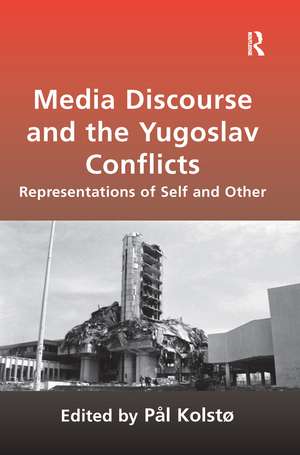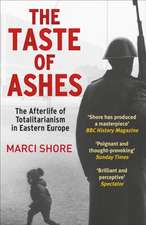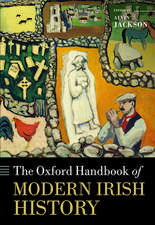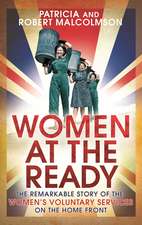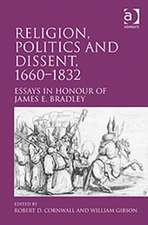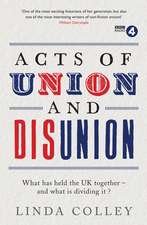Media Discourse and the Yugoslav Conflicts: Representations of Self and Other
Autor Pål Kolstøen Limba Engleză Paperback – 30 iun 2020
| Toate formatele și edițiile | Preț | Express |
|---|---|---|
| Paperback (1) | 383.13 lei 6-8 săpt. | |
| Taylor & Francis – 30 iun 2020 | 383.13 lei 6-8 săpt. | |
| Hardback (1) | 990.36 lei 6-8 săpt. | |
| Taylor & Francis – 20 apr 2009 | 990.36 lei 6-8 săpt. |
Preț: 383.13 lei
Nou
Puncte Express: 575
Preț estimativ în valută:
73.35€ • 76.24$ • 60.81£
73.35€ • 76.24$ • 60.81£
Carte tipărită la comandă
Livrare economică 07-21 februarie 25
Preluare comenzi: 021 569.72.76
Specificații
ISBN-13: 9780367603175
ISBN-10: 0367603179
Pagini: 284
Dimensiuni: 156 x 234 x 20 mm
Greutate: 0.45 kg
Ediția:1
Editura: Taylor & Francis
Colecția Routledge
Locul publicării:Oxford, United Kingdom
ISBN-10: 0367603179
Pagini: 284
Dimensiuni: 156 x 234 x 20 mm
Greutate: 0.45 kg
Ediția:1
Editura: Taylor & Francis
Colecția Routledge
Locul publicării:Oxford, United Kingdom
Cuprins
Media Discourse and the Yugoslav Conflicts
Notă biografică
Pål Kolstø is a Professor in the Department of Literature, Area Studies and European Languages, University of Oslo, Norway
Recenzii
'...the book not only contributes to a better understanding of why violence did/did not erupt in the former Yugoslavia, but also advances our understanding of the relationship of discourse to violence in general. This study provides a valuable contribution to our understanding of the media contexts and practices that shape conflict outcomes.' National Identities 'Collectively, the authors put together a balanced, well informed and intellectually stimulating book which adds to a better understanding of both the Yugoslav conflict and the role of media in it.' European Journal of Communication 'This volume constitutes an excellent overview and analysis of media discourse in the former Yugoslavia and provides a fresh approach to the analysis of key events surrounding the breakup of the Socialist Federative Republic of Yugoslavia and the conflicts that erupted on its territory between 1991 and 2004... the volume's editor successfully weaves together topics in the study of ethnic conflict, identity formation, and discourse analysis and critically examines the role of media discourse in inflaming conflict, reinforcing new identities, or reinterpreting historical narratives and events. His conclusion very effectively brings together many of the disparate and multifaceted strands brought out in the case study chapters. Overall, the volume is significant in its reliance on the media sources in the local Balkan languages, which would have otherwise been inaccessible to an English-speaking audience.' Slavic Review '...definitely worth reading for those interesting in the role of media in conflicts. It offers a complex theoretical frame plus a number of CDA based case studies which are especially interesting as they look at the reciprocity of the discourses of the conflict parties.' Politics and Culture '... Kolstø and his colleagues break a lot of new ground and thus deserve great praise for their work. Media Discourse and the Yugoslav Conflict will no doubt ensure that s
Descriere
In spite of the growing literature on discourse analysis, the relationship of discourse to violent/non-violent outcomes of conflict is an under-researched area. This book combines theories on ethnic conflict, identity construction and discourse analysis with a comprehensive and inclusive survey of the countries of the former Yugoslavia. It will be
